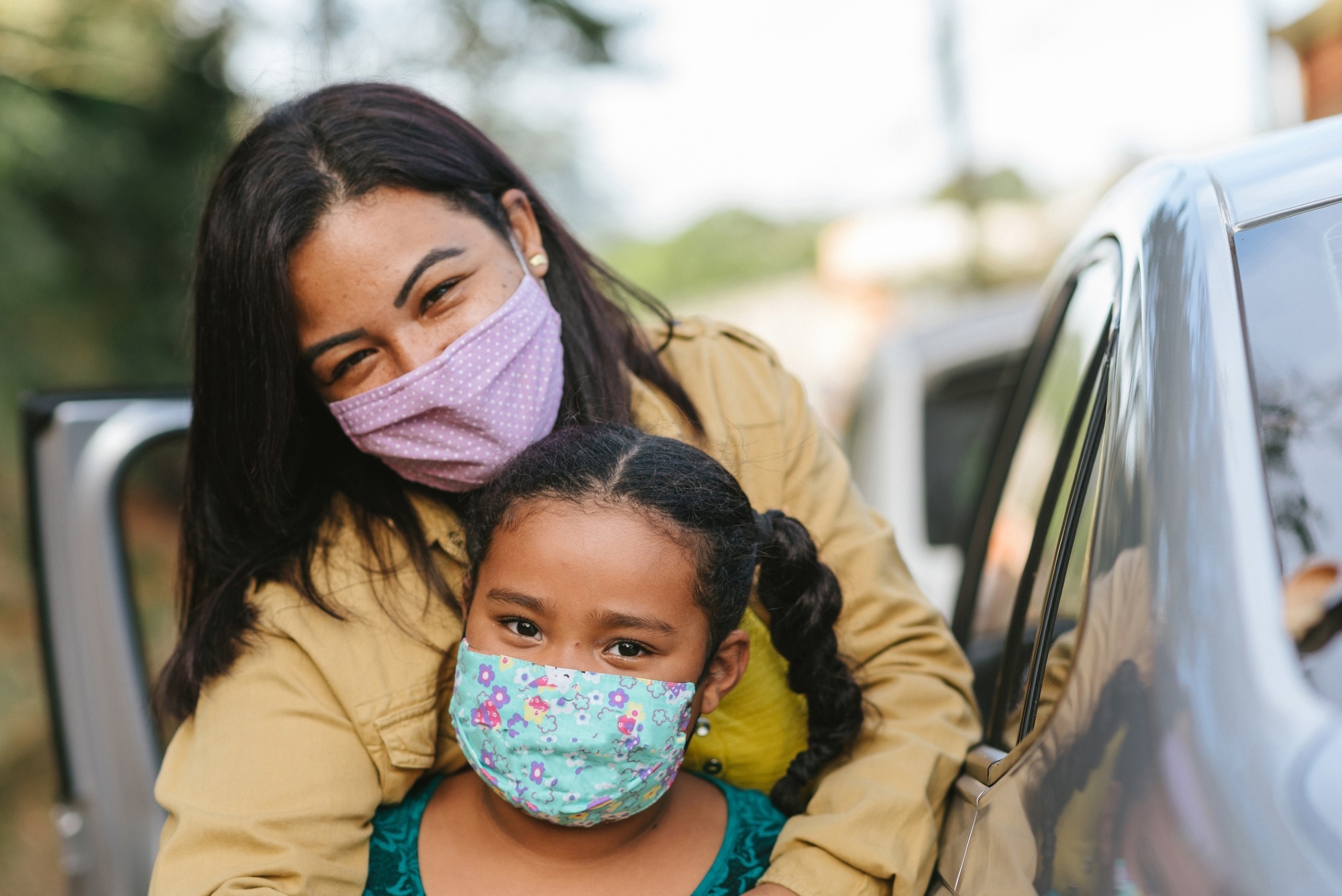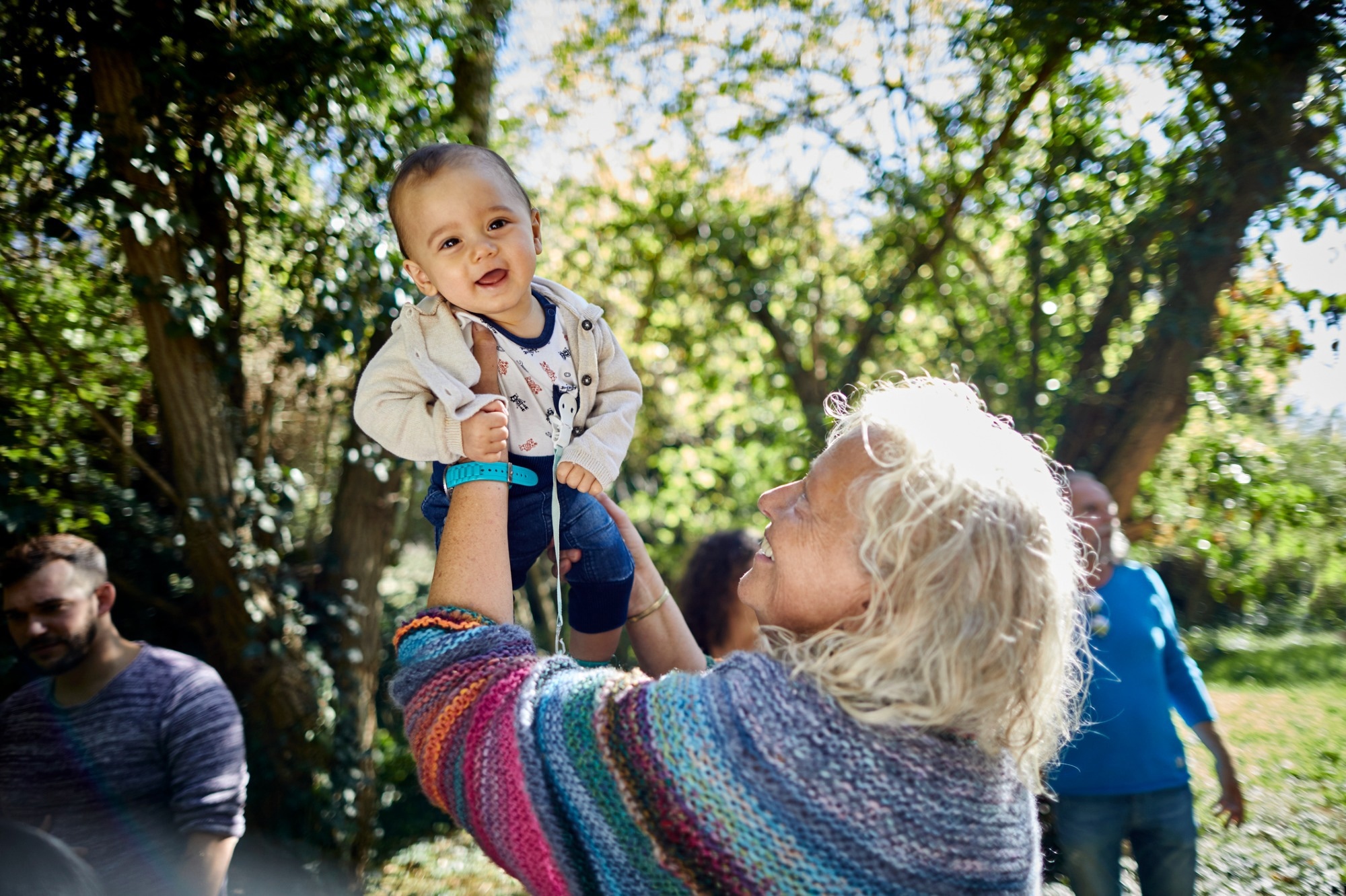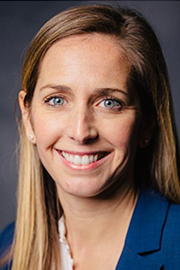Hi, I am Adrienne Sherk, the Senior Director for Community-Based Organizations Partnership at Unite Us. My career journey started after I graduated from West Point in 2006. I began as a platoon leader in the U.S. Army, where I led soldiers overseas in combat in Iraq and stateside at Fort Hood, Texas.
As a young leader, my experiences shaped my outlook and perspective on the world and ultimately led me to find impact-driven work in the civilian world. I have worked for nonprofit and technology organizations throughout my career and later found that I was most passionate about working at the intersection of these two industries.
I joined Unite Us because the mission to connect communities to health and social care services inspired me. Unite Us created the infrastructure to bring all stakeholders, from healthcare, government, and communities, to the same table to improve health outcomes across the nation. I wanted to be a part of the effort to help community-based organizations utilize our model at scale.
Please tell us about Unite Us’ goals and how its end-to-end solution works?
Unite Us’ mission is to connect health and social care services. With Unite Us, providers across sectors can send and receive secure electronic referrals and report on tangible outcomes across a full range of services in a centralized, cohesive, and collaborative ecosystem. Unite Us has the only end-to-end solution in the market.
The past eight to nine years have shown us that this work does not have a short-term quick fix. The solution requires a long-term vision. When healthcare investments in social determinants of health started, it resulted from the shift towards value-based care, and the primary focus was on how to send a referral out to a social care provider.
Today we know that it is so much more than that—yes, you need the core infrastructure connecting providers in a collaborative ecosystem. Still, we need standard data to monitor and track gaps in service and trends in outcomes. We need tools that support care navigators enrolling clients in services. We also need to shift funding and investments into the community. Without that, we will not be able to advance health for our communities. Our focus is continually innovating, finding new solutions, and bringing partners together to solve large and complex problems.

Unite Us’ mission is to connect health and social care services. Image Credit: Unite Us
Health inequity is a crisis across many parts of the world. How does Unite Us strive to achieve health equity, and what more must be done for a future where everyone can access appropriate healthcare?
Traditionally, efforts to improve health in the U.S. have looked to the healthcare system as the key driver of health and health outcomes. However, there has been increased recognition that improving health and achieving health equity will require broader approaches that address social, economic, and environmental factors that influence health, also known as social determinants of health.
Right now, a person’s zip code determines more about their health and longevity than any other factor, which has to change.
Adrienne Sherk, Unite Us
Right now, a person’s zip code determines more about their health and longevity than any other factor, which has to change. Unite Us is focused on ensuring that health equity is more than a buzzword but something that all communities have the power to create.
Starting in March 2020, we saw over a 287 percent increase in electronic referrals for some of our most commonly requested service types: food assistance, income support, and individual and family services. In turn, Unite Us impacted 1.5 million lives in some way last year.
COVID ripped off the bandaid and revealed the disparities that existed all along—now we have the chance to affect systemic, meaningful change. Leaders in government and healthcare have made firm commitments to advance health equity and address social determinants of health to improve health outcomes, and are increasingly using regulatory levers to drive systemic change.
As a result, the country is witnessing historic and significant growth in funding for social care. However, the lack of infrastructure to bridge health and social care continues to challenge progress. Unite Us’ technology is advancing health equity across the country by connecting individuals to the care they need when they need it, regardless of circumstances.
What communities have Unite Us partnered with, and what further partnerships do you expect to see as the network grows?
Unite Us is currently active in 45 states, with plans to expand in all 50 states by the end of 2022. We are statewide in several states including North Carolina, Virginia, and Delaware, just to mention a few.
Please tell us about how you integrate diversity, equity and inclusion into your work at Unite Us?
The Unite Us team is diverse in every sense of the word—gender, race, geography, age, ability, experience—the list goes on. Our team shares a collective dedication to our mission to advance solutions that enable people to live healthier, more fulfilling lives.
As we grow and expand across the country, we work to ensure that our company reflects the communities we serve, and to build an environment where all team members are supported in health, career, and well-being through company-wide policies and practices.
In collaboration with our diversity, equity, and inclusion (DEI) team, our cross-functional DEI committee supports and drives impact-focused initiatives and provides feedback to uphold our values and foster an equitable and inclusive environment.
 The Unite Us team shares a collective dedication to our mission to advance solutions that enable people to live healthier, more fulfilling lives. Image Credit: Unite Us
The Unite Us team shares a collective dedication to our mission to advance solutions that enable people to live healthier, more fulfilling lives. Image Credit: Unite Us
Here at News-Medical, we are purveyors of science communication. How do you think science communication fits into the health and social care networks that Unite Us builds?
While Unite Us is not specifically in the science communication business, we believe that individuals and communities should be aware of those factors that impact their health, which can change to improve health outcomes.
To that end, Unite Us aligns health and social care providers around a shared goal of improving community health outcomes by standardizing the language and process related to social care.
Unite Us team members have written white papers about the impactful work we are doing in communities across the country, such as Leveraging Data to Advance Health Equity, Supporting the Shift to Whole-Person Care, and our 2021 impact report, where we provide a high-level overview of our work with our community partners and how we turned insight into action. Unite Us also hosts webinars at the community and national level with thought leaders in the industry who give their perspectives on how the Unite Us solution effectively drives change across the health and social care field.
As climate change accelerates and associated health conditions and inequities surge, how will Unite Us and the rest of the health and social care sectors keep up and find solutions?
Although Unite Us does not directly address climate change in our work, we continue to work towards a future where everyone has access to the care they need, regardless of where they live or their circumstances. We will remain focused on expanding our coordinated care network, comprised of cross-sector providers to work together in real-time to support the complex needs of local individuals and families.
The network includes partners who provide a broad range of services such as housing, employment, food assistance, behavioral health, utilities, healthcare entities, educational institutions, United Ways, and other organizations representing a range of sectors. Unite Us’ mission remains constant whether the challenge is economic uncertainty, climate change or a global pandemic.
Over the last few years, we have seen how important collaboration within the social and healthcare sectors is for finding solutions and moving forward. How does Unite Us facilitate this collaboration?
Before Unite Us, the healthcare and social care industry worked in different silos. Even if they had the will, they did not necessarily have the ability to share language and data in a way that made sense.
Unite Us is the bridge to connect health and social care providers, so they can break down barriers and work across sectors to drive systemic, meaningful change to meet people’s needs. We believe there should be no wrong door for people seeking services, whether an individual needs help with food assistance, income support, or housing.
As the need for community and social care support increases, the Unite Us network allows providers to connect their clients to much-needed services and connect them to the help they need when they need it, so more individuals can pursue their full potential with dignity and community well-being is strengthened.
Last year, Unite Us impacted 1.5 million lives in some way, shape, or form, and the Unite Us network has helped reduce the average time to referral acceptance from 14 days to two days.

Unite Us is the bridge to connect health and social care providers. Image Credit: Unite Us
How has the COVID-19 pandemic affected the digitalization of health and social care solutions, and thus the work of Unite Us?
COVID-19 revealed disparities we all knew existed and identified gaps within a fragmented system, shedding light on health inequities—particularly in marginalized communities and communities of color.
As a mission-driven technology company that connects social and healthcare providers through coordinated care networks, Unite Us was built to respond to a crisis such as COVID-19.
Unite Us is focused on transforming the system to remove those gaps in care. Unite Us technology, paired with its community experts working directly with local partners on the ground, changes the traditional care delivery model to one that goes beyond making referrals to ensuring social needs are met through a secure, closed-loop system.
Community health and social care providers no longer have to operate in fragmented silos. Instead, with complex permissions systems embedded in the platform to protect privacy rights, they can each follow a person’s journey through social care organizations to ensure individuals' needs are met, and the required services are received.
COVID-19 revealed disparities we all knew existed and identified gaps within a fragmented system, shedding light on health inequities—particularly in marginalized communities and communities of color.
Adrienne Sherk, Unite Us
What has been the highlight of your work at Unite Us so far?
One of the most significant aspects of my role is collaborating with leaders from national community-based organizations to think creatively about cross-sector partnerships.
It is powerful to hear directly from the organizations delivering critical services throughout the country to understand their goals, and then work to find innovative ways to utilize our products to better serve and support their constituents at scale.
Have you got any exciting upcoming projects you can tell us about?
We are in the process of creating some really innovative partnerships with large, national organizations that will increase access to critical services across the country. We will be able to share much more in the near future—stay tuned!
What do you imagine the future will look like for Unite Us?
If you look at what we are doing in partnership with North Carolina DHHS through the Healthy Opportunities pilot, you will see that our social care payments solution is uniquely positioned to provide the necessary infrastructure for the state’s Medicaid programs looking to fund social care. This is just the beginning.
The Unite Us Social Care Payments solution offers payers the ability to partner effectively with social care providers, manage programs for efficiency and increase program impact, and we will continue to ensure that this infrastructure is the new industry standard for social care funding.
Where can readers find more information?
For more information, please visit www.uniteus.com.
About Adrienne Sherk
Adrienne Sherk is the Senior Director of Community-Based Organization Partnerships at Unite Us. In her role, she focuses on building strategic relationships with national organizations offering communities critical services. Before joining Unite Us, Adrienne spent time at Salesforce, Team Red, White & Blue, and the U.S. Army, where she served as a platoon leader and executive officer in Iraq and Ft. Hood, TX. Adrienne holds a BS from the United States Military Academy at West Point and will begin the Master of Public Health program at George Washington University in the fall of 2022. Additionally, Adrienne serves as the executive sponsor of the Veteran Employee Resource Group for Unite Us. She resides in the San Francisco Bay Area with her husband and two children.
Unite Us Media Contact
Jaquetta Gooden
[email protected]
(808) 485-9086